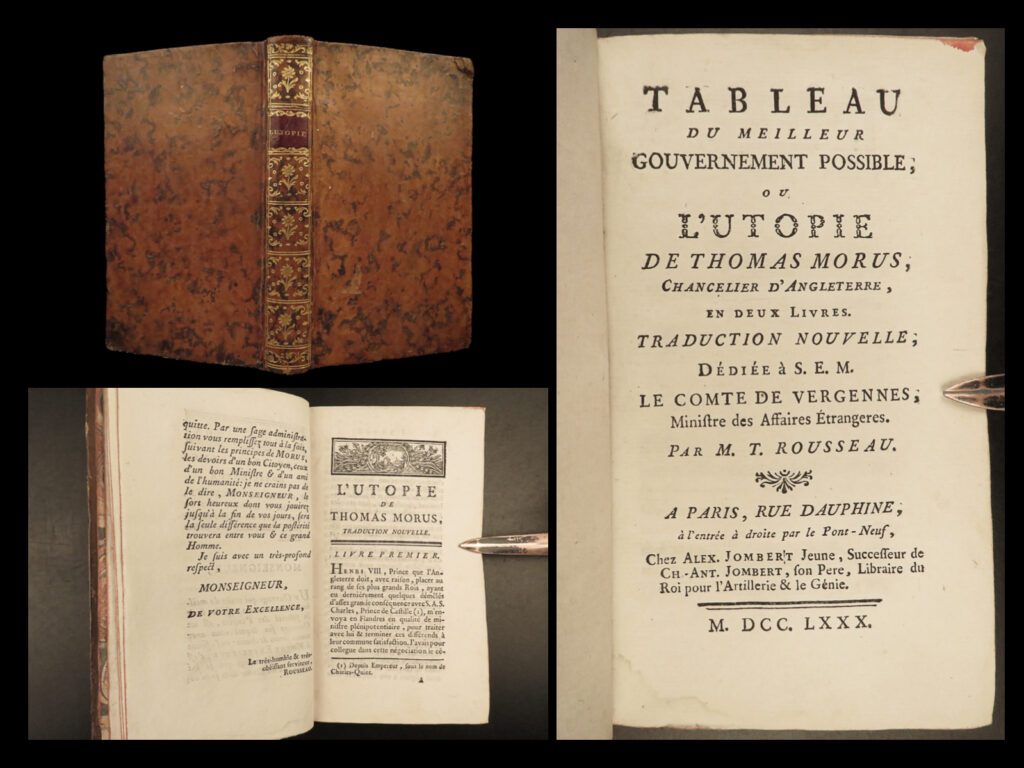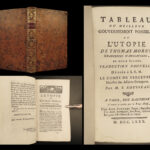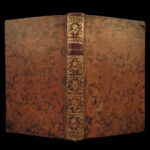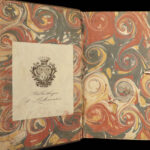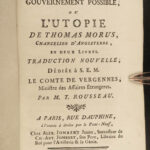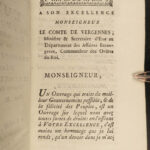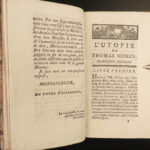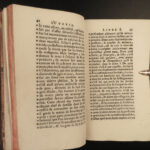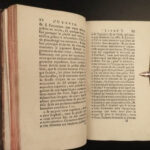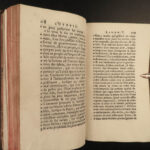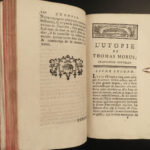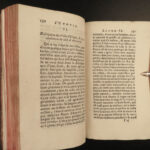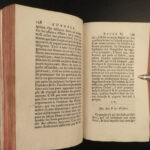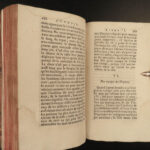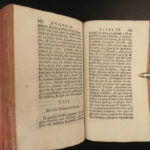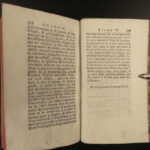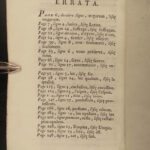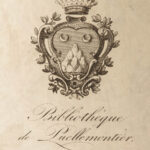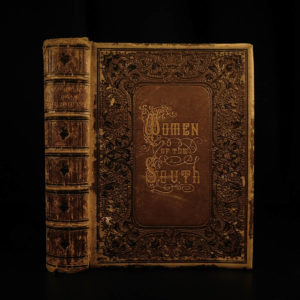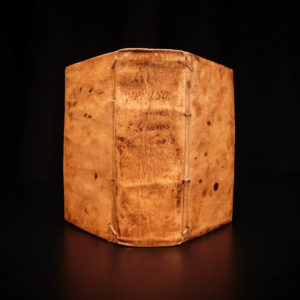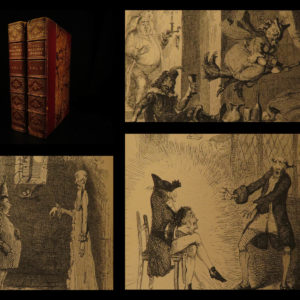1780 UTOPIA Thomas More Socialism Communism Utopian Politics Dystopian Marxism
“[how can anyone] be silly enough to think himself better than other people”
― Thomas More, ‘Utopia’
This famous book by Thomas More, ‘Utopia,’ depicts a fictional island society with its own social, religious, and political customs. First published in 1516, many 16th-century critics were curious and confused at the reason More wrote the work. Many aspects of ‘Utopia’ describe life in a monastery, yet still, More seems to be criticizing European society – which he considered to have many problems. More, a devout Catholic, writes of controversial topics which those on the island of Utopia practiced such as divorce, euthanasia, married priests, and female priests. These practices were widely opposed within the Catholic faith, but More cites them as commonplace in his writing.
‘Utopia’ is even polarizing in terms of modern politics. It seems to have been influential to Anabaptists, communism, and social Marxism. Though,
‘the answer implied by “Utopia” was that political realities must be changed in order to free men.” “More was claiming that community pressure could be made to correspond to and to endorse conscience and the way to achieve this was through institutional and legal regulation, supervision and control…the environment of the monastery.” (Davis, 57-58).
This 1780 French edition of More’s “Utopia” was translated by Thomas Rousseau.
1780 UTOPIA Thomas More Socialism Communism Utopian Politics Dystopian Marxism
“[how can anyone] be silly enough to think himself better than other people”
― Thomas More, ‘Utopia’
This famous book by Thomas More, ‘Utopia,’ depicts a fictional island society with its own social, religious, and political customs. First published in 1516, many 16th-century critics were curious and confused at the reason More wrote the work. Many aspects of ‘Utopia’ describe life in a monastery, yet still, More seems to be criticizing European society – which he considered to have many problems. More, a devout Catholic, writes of controversial topics which those on the island of Utopia practiced such as divorce, euthanasia, married priests, and female priests. These practices were widely opposed within the Catholic faith, but More cites them as commonplace in his writing.
‘Utopia’ is even polarizing in terms of modern politics. It seems to have been influential to Anabaptists, communism, and social Marxism. Though,
‘the answer implied by “Utopia” was that political realities must be changed in order to free men.” “More was claiming that community pressure could be made to correspond to and to endorse conscience and the way to achieve this was through institutional and legal regulation, supervision and control…the environment of the monastery.” (Davis, 57-58).
This 1780 French edition of More’s “Utopia” was translated by Thomas Rousseau.
Item number: #21857
Price: $650
MORE, Thomas
Tableau du meilleur gouvernement possible, ou l’Utopie de Thomas Morus, chancelier d’Angleterre, en deux livres.
A Paris: chez Jombert, 1780.
Details:
- Collation: Complete with all pages
- [4], 339, [1]
- References: Davis, Utopia and the Ideal Society; Lakowski International Thomas More Bibliography U19;
- Provenance: Armorial bookplate – Bibliothèque de Puellemontier
- Language: French
- Binding: Leather; tight and secure
- Size: ~6.75in X 4in (17cm x 10cm)
Our Guarantee:
Very Fast. Very Safe. Free Shipping Worldwide.
Customer satisfaction is our priority! Notify us with 7 days of receiving, and we will offer a full refund without reservation!
21857
Category
Literature
Authors
MORE, Thomas
Printing Date
18th Century
Language
French
Binding
Leather
Book Condition
Excellent
Collation
Complete

